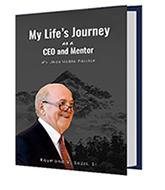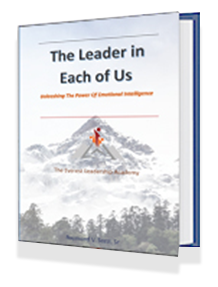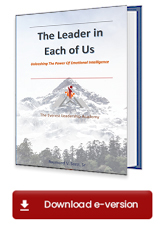developing tough-minded skills and attitudes
that shape one's social character.
Raymond V. Sozzi, Sr.
- Founder and CEO
Sean Timmins
- Director of Technology
Michael Sozzi
- Director of Student Life
Heather Trotta
- Communications and Strategy Advisors
Greg Taylor
- Advisory Board
Marcia Radosevich
- Advisory Board
Dave Fall
- Advisory Board
Eliot Powell
- Advisory Board
Founder's Message
I am living proof that the American Dream is still very much alive and well. As a first generation American, born and raised in the Bronx, I had to make a choice early in life. Would I become a product of my environment or a product of my experiences? I selected experiences.
I felt strongly (as expressed by baseball player Wade Boggs) that our lives are not determined by what happens to us but how we react to what happens. It's not by what life brings us, but the attitude we bring to life. It's up to each of us to take what we're given and maximize the outcome.
Little did I understand at a young age that in addition to a good education (the IQ subject-matter skills), leadership EQ, the so-called "people skills", are equally important as you climb the mountain to a successful conclusion. At the Everest Leadership Academy, we define success as achieving your purpose in life – being all you can be.
Early in life, during the formative years, we must develop these EQ people skills to make a significant positive difference in life. Typically, there are a few defining moments, or inflection points, in the school years that, for the most part, define your life’s legacy.
The two components of EQ skills are:
- Personal - self-awareness and self-management.
- Social - social awareness and relationship management.
Based on my many years as a leader and mentor, I have concluded the following:
- Leadership is not a title.
- Leadership is not having power, but rather empowering others. Abe Lincoln once said, "If you want to test a person's character, give that person power".
- Leadership, for the most part, is a handshake and a smile. Not just any handshake, but a firm handshake. Not just any smile, but a sincere, caring smile.
- Leadership style embraces empathic toughness. You have to first care about people in order to demand their very best.
- Leadership is not necessarily what you do, but who you are.
- Leadership is not knowledge (IQ) by itself. But what may be more important is the wise use of knowledge and good judgement, which requires EQ skills.
If you are interested in joining The Everest Leadership Academy click on "Getting Started" and enjoy your life’s journey up the mountain.
Raymond Sozzi, Sr.
Founder's Books
The Leader in Each of Us :
This book entitled "The Leader in Each of Us" is an essential component of the teachings of the Academy. All students and members of the Academy are encouraged to read this book as part of the curriculum. Many of the experiences in this book describe what happened as the Founder grew up. Others talk about the guiding principles incorporated into The Everest Leadership Academy with the primary theme of unleashing the power of emotional intelligence (EQ). The book focuses on the two components of EQ skills: Personal (self- awareness and self-management) and Social (social awareness and relationship management).
 My Life's Journey as a CEO and Mentor :
My Life's Journey as a CEO and Mentor :
The founder's passion and vision is very much the theme of his book entitled "My Life's Journey as a CEO and Mentor." The book embraces the notion, as expressed by Wade Boggs, that "our lives are not determined by what happens to us but how we react to what happens, not by what life brings us but the attitude we bring to life."
This book is so relevant to the Academy in as much as the founder started out much like the students and members of the Academy. The son of an immigrant, born and raised in New York City, his parents were not well educated but had a strong work ethic and a very positive attitude. These are the values that enabled the founder to achieve the American dream. Your life’s story provides the context for your experience and, through it, you can find the inspiration to become a great leader.



